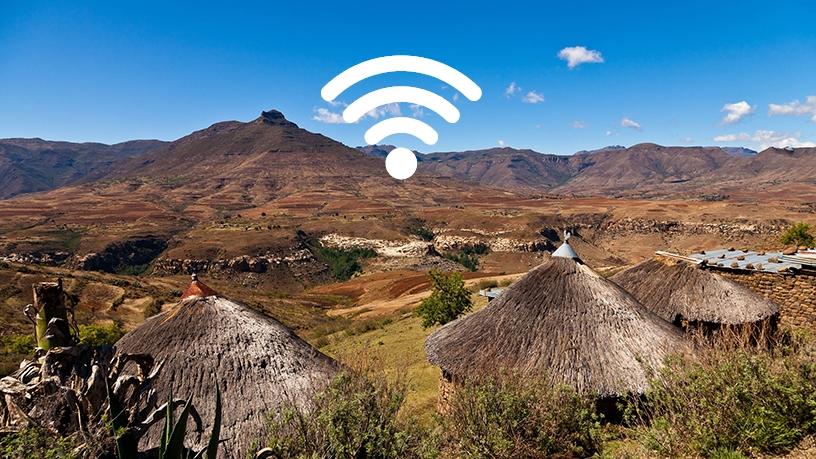Nigeria’s ngPIF Forum Drives Expansion of Digital Connectivity and Infrastructure
In a significant step toward closing Nigeria’s digital divide, leading technology figures and key stakeholders gathered in Lagos for the Nigerian Peering and Interconnection Forum (ngPIF). The event, jointly organized by the Nigerian Network Operator Group and the Internet Exchange Point of Nigeria (IXPN), provided a strategic platform for discussion on enhancing internet infrastructure, especially in underserved regions.
Government Support for Digital Transformation
Representing Lagos State Governor Babajide Sanwo-Olu, Ganiyu Oseni, Senior Adviser on Technology, Broadband, and Innovation, emphasized the government’s commitment to digital inclusion. “Digital connectivity is a catalyst for economic transformation,” Oseni declared, underscoring the crucial role connectivity plays in driving growth, productivity, and innovation within Nigeria’s economy. His comments reaffirmed the state’s support for initiatives that will foster digital inclusivity and expand internet access across Nigeria.
Engaging Panels and Workshops on Peering and Interconnection
The two-day forum featured an array of panel discussions and workshops focusing on critical topics such as peering, interconnection, data centers, and the government’s role in promoting digital innovation. These sessions allowed for in-depth exploration of how Nigeria can optimize its internet infrastructure to support a rapidly growing digital economy.
National coordinator of ngPIF, Wale Adedokun, highlighted the forum’s goal of closing the digital gap between urban and rural areas. He noted the importance of involving all stakeholders, including government, private sector players, and non-governmental organizations, in making internet resources more accessible and affordable. “This forum has evolved into a vibrant community dedicated to advancing Nigeria’s interconnection and peering infrastructure, putting the country on the global digital map,” Adedokun stated.
Rural Connectivity and Government Support
Muhammed Rudman, CEO of IXPN, echoed the importance of expanding connectivity to rural areas, where digital access is limited. He advocated for greater government involvement, especially through initiatives like the Universal Service Provision Fund, which could help fund connectivity projects in remote regions. Rudman stressed that improved digital infrastructure in rural areas would foster greater economic participation, enabling residents to engage with digital markets, access educational resources, and participate in online services.

Industry Leaders’ Commitment to Nigeria’s Connectivity Future
One of the forum’s notable voices was Lars Johannisson, CEO of Rack Centre, an African data center specializing in carrier-neutral data colocation services. Speaking during a panel discussion, Johannisson emphasized Rack Centre’s dedication to advancing Nigeria’s digital future by developing resilient and scalable infrastructure. “Through Rack’s open-access ecosystem, we have further enhanced network resilience to ensure seamless connectivity, even in challenging environments, making Nigeria an attractive digital hub,” Johannisson affirmed.
Rack Centre, established in 2012, has made substantial contributions to Nigeria’s connectivity landscape. Its state-of-the-art, Tier III-constructed facility provides cloud-neutral data center colocation services, offering clients unrestricted interconnectivity between carriers and consumers. As a key player in the region, Rack Centre hosts 64 telecom carriers, Internet Service Providers (ISPs), global Tier 1 networks, and pan-African carriers, ensuring a robust digital infrastructure for Nigeria’s growing digital economy.
SEE ALSO: Intelsat Launches CellBackhaul Service in Nigeria to Boost Africa’s Connectivity Infrastructure
Building Nigeria’s Digital Future: A Path Forward
The Nigerian Peering and Interconnection Forum emphasized the need for a collective approach to overcome Nigeria’s digital divide. By fostering collaboration among industry leaders, government agencies, and infrastructure providers, Nigeria aims to create a more inclusive digital environment that connects both urban and rural communities. As digital transformation remains a priority, events like ngPIF play an essential role in advancing Nigeria’s vision of a digitally connected future.
Startups Call for Improved Connectivity to Power Growth
After the Nigerian Peering and Interconnection Forum, three startup founders reached out to StartupsVibes and voiced their frustrations over how poor internet connectivity has affected their businesses. Each had faced unique struggles, but all shared the same sentiment: without reliable internet, their ability to grow and reach customers was severely limited.
Ade, a founder of an online learning platform based in Lagos, explained that frequent outages and low internet speeds made it hard to serve students. “Our platform is supposed to be accessible at any time for people trying to learn new skills,” Ade said. “But when the internet goes down, we can’t deliver. We’ve lost clients because they feel like they can’t rely on us.” Ade added that his startup, which could be a major source of education in Nigeria, can only reach its full potential if connectivity becomes stable.
Similarly, Fatima, who runs a logistics startup, said that her drivers often struggle to stay connected with their dispatch app, leading to delayed or missed deliveries. “Our entire business model relies on constant communication between our team and drivers on the road,” she explained. “When the network cuts out, orders get delayed, customers get upset, and we lose money. It feels like we’re operating with one hand tied behind our back.” Fatima called for immediate action to resolve these issues in urban centers.
Chijioke, the founder of a tech consulting firm, expressed a different concern. “Expanding digital connectivity to rural areas is important, yes,” he said, “but let’s fix the internet problems in cities first. I can’t count how many times meetings with international clients had to be rescheduled because of poor connectivity.” Chijioke felt that reliable internet in major cities was crucial before focusing on rural expansion, especially for startups trying to compete globally.
These founders’ experiences served as real-world examples of how poor internet connectivity can directly limit business growth and innovation. Their stories underscored the need for forums like ngPIF to drive solutions for better internet infrastructure, so that Nigerian startups can thrive and scale effectively.
Have an inspiring startup story to share? We’d love to hear it! Get your business in the spotlight by being featured in our Startups Spotlight series. Send us your story, and let’s shine a light on your journey, challenges, and triumphs. Ready to inspire the next wave of founders? Drop us an email at emmanuel@hera.marketing and let’s make it happen!



